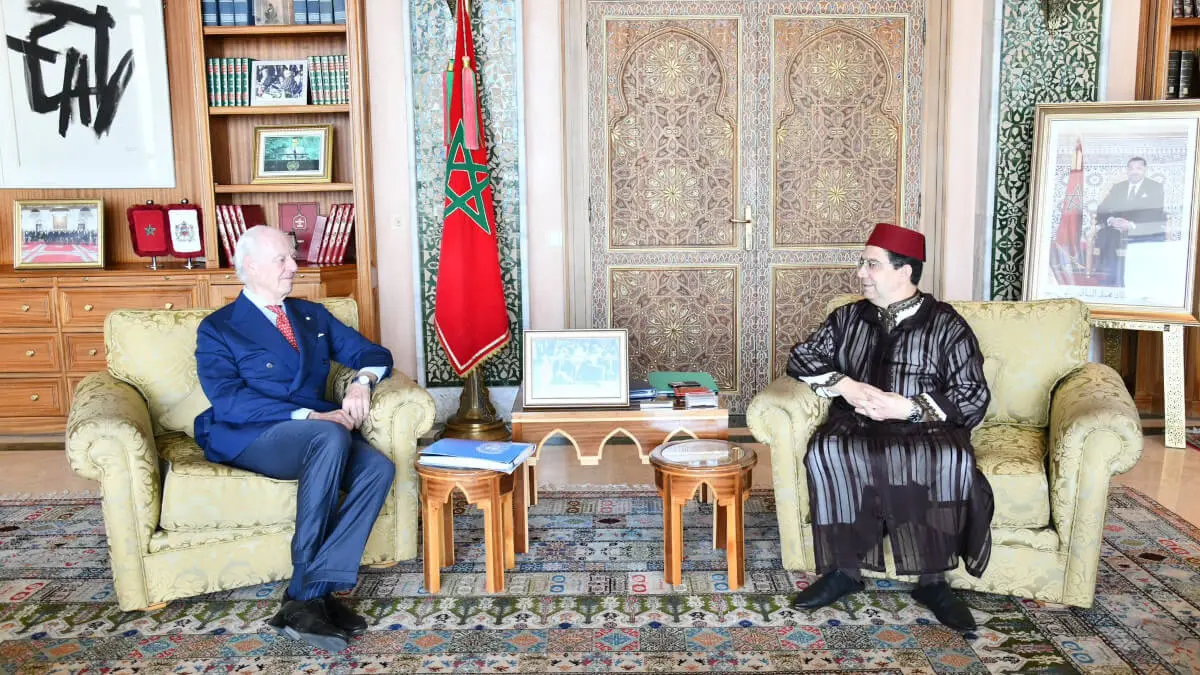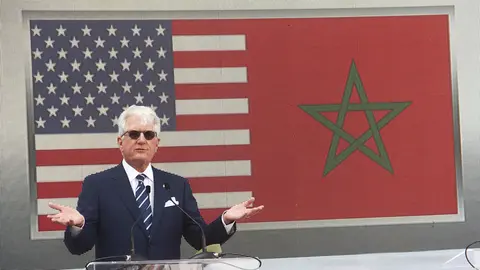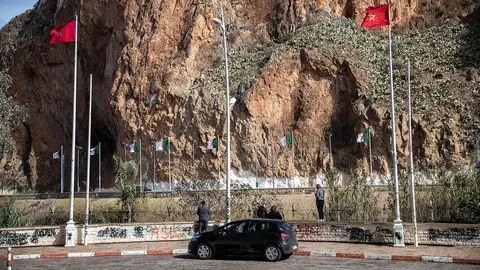Nasser Bourita receives Staffan de Mistura and emphasises international support for Morocco's sovereignty over Western Sahara

Nasser Bourita, Moroccan Minister of Foreign Affairs, received Staffan de Mistura, the United Nations (UN) Secretary-General's Special Envoy for Western Sahara, in Rabat, ahead of the upcoming informal Security Council consultations on the Saharawi dispute in April.
This meeting took place as part of the tour being undertaken by the United Nations representative, who continues to promote negotiations between the parties involved to resolve the question of Western Sahara, a problem that has lasted for almost five decades since the end of the Spanish colonial period.
Nasser Bourita was accompanied by Omar Hilale, Morocco's permanent representative to the UN, which shows the importance that the Moroccan kingdom attached to the meeting with Staffan de Mistura.
The Moroccan diplomats emphasised the great international support that Morocco has received from more than a hundred nations for its Autonomy Plan for Western Sahara, which is a remarkable endorsement for the North African nation, which considers this territory to be part of its southern provinces.
Morocco proposes for Western Sahara a formula of broad autonomy under Moroccan sovereignty respecting the UN resolutions that would grant a great capacity for self-government to the Saharawi authorities and would involve a significant economic and social development plan in all areas, leaving defence and foreign policy in the hands of the Moroccan state. Notable powers have given their support to the Moroccan initiative, such as the United States, France, the United Arab Emirates, Israel, Germany and even Spain, which consider it to be the most serious, credible and realistic way of resolving the Saharawi dispute.
Monsieur le Ministre Nasser Bourita s’est entretenu, lundi à Rabat, avec l’Envoyé Personnel du Secrétaire Général de l’ONU pour le Sahara marocain, M. Staffan de Mistura pic.twitter.com/4k0Q4SZ2sf
— Maroc Diplomatie 🇲🇦 (@MarocDiplomatie) March 24, 2025
This vision is opposed by the proposal of the rival Polisario Front, supported by Algeria, which calls for a referendum on independence for the Saharawi people, which has much less international support and which is difficult to materialise, according to various analysts, for reasons such as the drawing up of an electoral roll, taking into account in this case the population division between the areas controlled by Morocco in its so-called southern provinces and the refugees in the camps in Algerian territory, who live in very difficult conditions in settlements such as those in Tindouf with very few resources.
Nasser Bourita and Omar Hilale emphasised the message from King Mohammed VI that Morocco's proposal is much more realistic and has wide global acceptance, as opposed to the opposition and independence theses that are further from reality and a feasible and beneficial solution for the Saharawis.
The Alaouite monarch has already referred to Algeria, indicating that he regrets the fact that some countries remain attached to ‘obsolete visions’ and ‘stuck in past narratives’ while they continue to oppose Morocco's recovery of its southern provinces.
‘It is time for the United Nations to assume its responsibility and explain the great difference between the real and legitimate world, represented by Morocco in its Sahara, and a world frozen in time, disconnected from reality and from the events that have taken place,’ said the Moroccan king during a speech last year on the occasion of the celebration of the 49th anniversary of the Green March, which marked the entry of the Moroccans into the territory, claiming their rights to it after the end of the Spanish colonial period.










